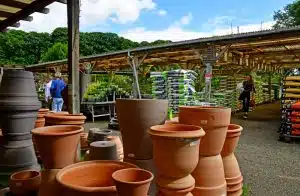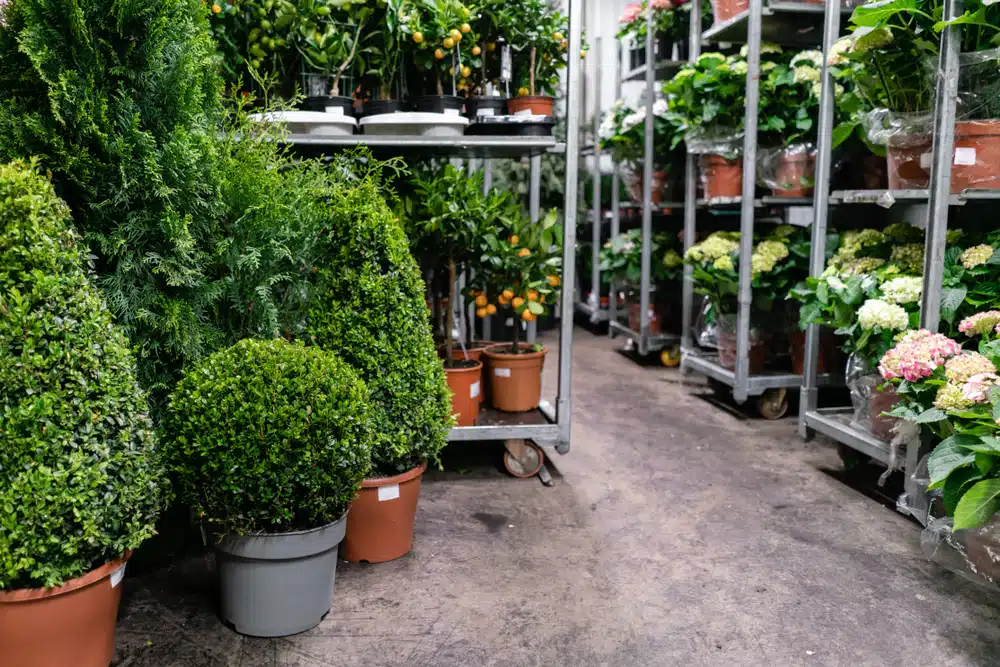
The garden centre sector is also benefiting from the ongoing trend for ‘sustainability’, with consumers increasingly looking for products that are environmentally friendly and sustainable. This is having a positive impact on sales of plants, seeds, and organic gardening products. Looking ahead, the garden centre sector is expected to continue to grow, with the number of garden centres expected to reach 8,000 by 2025
This article will walk you through all you need to know about the latest trends in the garden centre industry.
What has been happening in the garden products sector?
Several factors have contributed to the steady increase in garden centre product demand over the past few decades:
- The housing market was buoyant during the mid-2000s, with many new properties being built
- TV, radio, magazines, and newspapers frequently cover gardening, which is one of the most popular leisure activities.
- People don’t have much time to spend growing plants from seed, so container grown plants and pre-planted pots make instant gardening possible
- There has been a significant rise in spending on items that enhance the yard, such as furniture, barbecues, lights, paving, decking, and fencing, as well as ornaments and planters.
- It has become increasingly popular to buy ‘green’ and ‘eco-friendly’ items like water filters and composters
- Growing interest in home-grown vegetables has been boosted by increased awareness of healthy foods
Despite this, other retailers are targeting the market as well, such as DIY sheds. Despite the rise in the number of national chains operating large outlets in the specialist garden centre sector, many small independents remain.
Similar to other retail sectors, garden centres suffered during the recession of late 2000s and early 2010s, butdemand for smaller, cheaper items such as plants and seeds held up fairly well, especially among older consumers. Growing vegetables at home has significantly increased the sale of seeds, plants, and gardening tools. Outdoor furniture and mowers, however, sold at a lower rate, and the market became more competitive overall.
Despite the economy picking up and long periods of sunny weather, 2014 was a much better year for the industry. There was a significant increase in sales of plants as well as barbecues and garden furniture. A good year for garden centres in 2015 was marked by strong sales of non-plant lines such as clothing and catering.
Sales for the year as a whole held up reasonably well after the UK’s vote to leave the EU in June 2016. In the spring and autumn, bad weather increased wastage, and the fall in sterling’s value during the year made imported stock more expensive. As a result, margins suffered. Over the next few years, consumers may cut back on spending on gardening due to rising inflation and uncertainty about Brexit negotiations. There will likely be continued pressure on prices.
It is likely that the market for garden products will remain strong in the long run, but smaller independent garden centres may have difficulty competing in a very competitive market. The next generation of gardeners may never acquire the gardening skills and habits that their parents’ generation acquired. Garden sizes are generally getting smaller, and many people pave over their gardens to reduce maintenance work and to provide a parking area. All of this means fewer plants are needed.
Staff shortages have been a problem for the sector in recent years. A successful garden centre needs knowledgeable and friendly staff, since many customers will have questions about the plants on display.
Keeping up to date with developments
Garden products manufacturers, wholesalers, distributors, retailers, and growers are all represented by the Horticultural Trades Association (HTA). It is located at Horticulture House, Manor Court, Chilton, Didcot, Oxfordshire OX11 0RN and offers a range of services including assisting its members with legal issues.
Among the services offered by the Garden Centre Association (GCA) are an annual Yearbook, a regular newsletter, and trading trends reports. A directory of members with links to their websites is maintained by the GCA online. The GCA website provides more information.
Horticulture Week is published by Haymarket Media Group. For more information, please visit their website.
You can find the latest news about the garden centre sector on the Garden Centre Retail website, along withdetails about new product launches and advertisements for available business opportunities.
Trade shows
Visiting trade shows and exhibitions in the gardening sector can provide you with a lot of useful information. Every September, the NEC hosts GLEE, one of the main exhibitions. GLEE’s website has more information about this event. As a result, there is an increasing demand for trade shows that cater to this growing industry. The Garden Centre Sector Trade Show is one of the largest events of its kind in the UK, and it provides an important platform for businesses to showcase their products and services.
The show attracts buyers from all over the country, and it provides an opportunity for retailers to meet with suppliers and discuss new trends. The Garden Centre Sector Trade Show is an essential event for anyone involved in the UK’s garden centre industry, and it is sure to continue to grow in popularity in the years to come.
Conclusion
According to a recent report, the garden centre sector trends include significant growth online. In the United Kingdom alone, online sales have increased by more than 50% in the last year. This trend is being driven by a number of factors, including the increasing popularity of home gardening and the availability of more affordable and convenient delivery options.
Garden centres are responding to this shift by investing in their online presence, offering customers a wider range of products and services. Some are even offering virtual tours and advice sessions to help consumers make the most of their outdoor space. With more people working from home and spending time outdoors, it is likely that the trend for garden centre sector will continue to grow online in the coming years.
Lee Jones is a seasoned Business Finance Specialist with over two decades of invaluable experience in the financial sector. With a keen eye for market trends and a passion for helping businesses thrive, Lee has become a trusted advisor to countless organizations seeking to navigate the complexities of finance.


